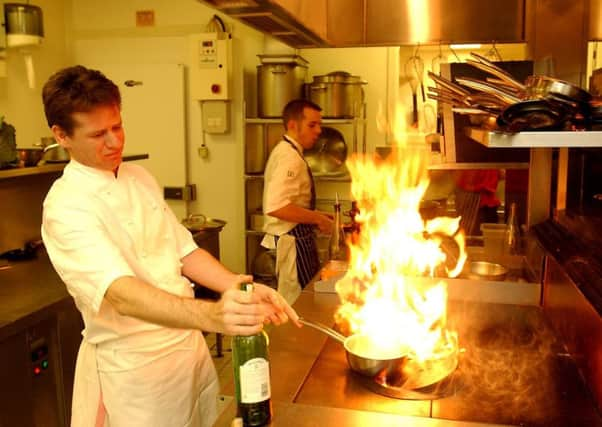Andrew Fairlie threw macho culture out the kitchen – Stephen Jardine


If you can’t stand the heat, keep out of the kitchen, so the saying goes.
Just a few years ago, that was horribly true. Professional kitchens were no place for the faint–hearted. The flames, knives and fragile tempers created a toxic recipe that could boil over. Chef Tom Aikens allegedly branded a kitchen assistant with a hot palette knife when something went wrong 20 years ago. Aikens now admits “I was 26 and a little bit arrogant and very, very out of my depth”.
Advertisement
Hide AdAdvertisement
Hide AdThe poster boy for that time was Marco Pierre White who famously sliced open the back of a young chef’s jacket with a paring knife when he dared to complain about the kitchen temperature.
That attitude didn’t stem from nowhere. Looking back on his apprenticeship in Harrogate, Pierre White says his name was never used. Instead he was referred to only using the most offensive of all four letter words.
No one was immune to the bullying and violence. This week Scotland lost Andrew Fairlie, the greatest chef of his generation. Even he had endured the worst of the profession when training in Paris. “It was one of those environments where it was easy to abuse and intimidate people – hot, sweaty and testosterone-fuelled,” he remembered.
In the strictly segmented kitchen brigade culture, there was a hierarchy of abuse. The Head Chef picked on the Sous Chef who picked on the Chef de Partie and all the way down the line to the poor kitchen porter who probably just kicked the bins.
In his kitchen memoirs, Anthony Bourdain recalled swapping battle honours with fellow chefs who’d been through particularly notorious workplaces but emerged to tell the tale. Thankfully, all that has now changed. The pressure remains but the menace that characterised many kitchens has now been removed.
Andrew Fairlie exemplified the modern approach to kitchen life. Before opening his restaurant at Gleneagles, he asked his team to list the best bits and worst bits of their jobs. He used all the positive things to shape the fledgling business and the rest were left behind.
Beyond that, he led by example. A quiet and thoughtful man, I knew him for 15 years and never once heard him raise his voice. His kitchen was the most high-profile in Scotland but it was a place of focus and concentration rather than fury and tantrums. All the young chefs who worked with him down the years learned that way of working and took it with them to their next job. That approach wasn’t just about being nice. It also made good business sense.
As the workplace changed and became more responsive to individual needs, the macho kitchen culture slid from representing a badge of honour into being key factor putting modern youngsters off joining the profession.
Advertisement
Hide AdAdvertisement
Hide AdRemoving the bad behavior has made a difference to that. Add in more flexible working conditions and we are now seeing more female chefs emerging which also helps.
Andrew Fairlie didn’t need to shout. He let his food do the talking and it earned him two Michelin stars. If we can learn one thing from his career, it is that being nice does pay off.
